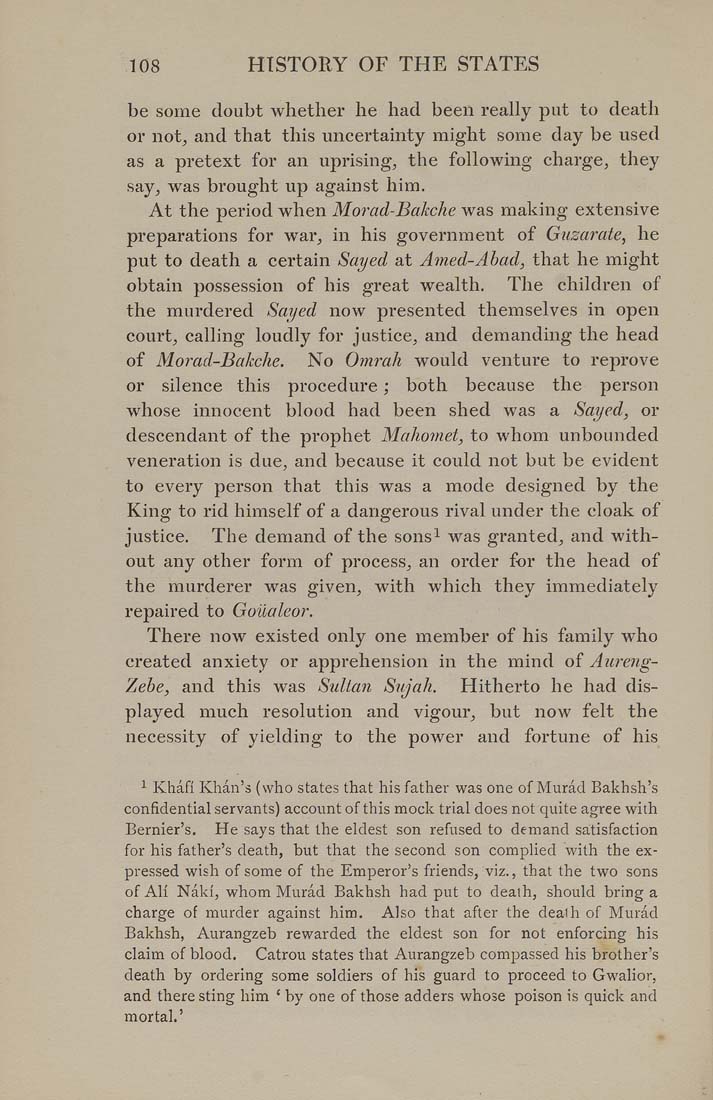108 HISTORY OF THE STATES
be some doubt whether he had been really put to death
or not, and that this uncertainty might some day be used
as a pretext for an uprising, the following charge, they
say, was brought up against him.
At the period when Morad-Bakche was making extensive
preparations for war, in his government of Guzarate, he
put to death a certain Sayed at Amed-Abad, that he might
obtain possession of his great wealth. The children of
the murdered Sayed now presented themselves in open
court, calling loudly for justice, and demanding the head
of Morad-Bakche. No Omrah would venture to reprove
or silence this procedure; both because the person
whose innocent blood had been shed was a Sayed, or
descendant of the prophet Mahomet, to whom unbounded
veneration is due, and because it could not but be evident
to every person that this was a mode designed by the
King to rid himself of a dangerous rival under the cloak of
justice. The demand of the sons! was granted, and with¬
out any other form of process, an order for the head of
the murderer was given, with which they immediately
repaired to Goiialeor.
There now existed only one member of his family who
created anxiety or apprehension in the mind of Aureng-
Zebe, and this was Sultan Sujah. Hitherto he had dis¬
played much resolution and vigour, but now felt the
necessity of yielding to the power and fortune of his
' Khafi Khan's (who states that his father was one of Murad Bakhsh's
confidential servants) account of this mock trial does not quite agree with
Bernier's. He says that the eldest son refused to demand satisfaction
for his father's death, but that the second son complied wdth the ex¬
pressed wish of some of the Emperor's friends, viz., that the two sons
of All Naki, whom Murad Bakhsh had put to death, should bring a
charge of murder against him. Also that after the death of Murad
Bakhsh, Aurangzeb rewarded the eldest son for not enforcing his
claim of blood. Catrou states that Aurangzeb compassed his brother's
death by ordering some soldiers of his guard to proceed to Gwalior,
and there sting him ' by one of those adders whose poison is quick and
mortal.'
|








